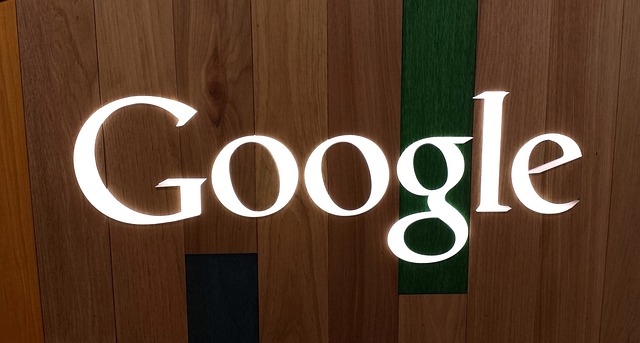Together with IB, Nigel Walsh discusses overcoming regulatory obstacles, data barriers, and the efficacy of AI.

Leading a significant revolution in the insurance sector is Nigel Walsh, Managing Director and Head of Global Insurance at Google Cloud. Because of the widespread use of AI and cloud computing, this industry, which was previously hampered by antiquated systems and cautious attitudes to change, is currently experiencing a rapid transition.
‘We’re still riddled with legacy’
As insurers grapple with the challenges of modernizing their infrastructure and embracing new technological capabilities, Walsh and Google Cloud are playing a critical role in guiding these organizations through their digital transformation. One of the most significant challenges insurance companies face in implementing AI-driven solutions is their dependence on legacy systems.
“Our legacy still plagues us,” Walsh (shown on the right) remarks to IB. It’s present everywhere. Despite our best efforts over the past few years to modernise the core, we still need to gain a deeper understanding of our insurance estate and prepare our data for the upcoming wave of innovation.
Insurance companies must be able to access the data for AI to work, which can be challenging when data is dispersed across multiple, unrelated systems.
Walsh states, “We need to be able to access data wherever it may be.”
As a result, Google Cloud has concentrated on developing solutions that combine disparate data sets, enabling insurers to utilise AI’s capabilities without being constrained by outdated technology.
“The journey to cloud is no longer an ‘if’ question,” Walsh says, adding that the question of cloud adoption has now shifted from whether to do it, to how best to leverage the cloud for maximum agility, security, and innovation.
One of the biggest advantages that cloud technology offers is agility – the ability to launch new products and adapt quickly in a rapidly changing market. This is crucial for an industry that is constantly facing new regulatory challenges.
‘Technology alone cannot solve all of the industry’s problems’
In addition to assisting with these regulatory issues, Google Cloud’s solutions support insurers in upholding a strong security posture. Walsh gives the connection between Google and Munich Re and Allianz through the Risk Protection Program as an example. This alliance helps to introduce cutting-edge risk management solutions to the market.
He said, “It demonstrates how we intend to collaborate with the insurance sector to help bring net new solutions to market.”
But technology can’t address every issue facing the sector on its own. The insurance industry is experiencing a widening skills gap, especially when it comes to implementing AI and other cutting-edge technology. Though many insurers lack internal knowledge in these areas, 95% of insurers feel data and analytics are critical to their business, according to Deloitte. Furthermore, over the next five years, the demand for digital skills in the insurance industry is expected to climb by 54%, according to the World Economic Forum’s Future of Jobs Report.
Walsh notes that the industry’s skill needs have changed significantly over time as well.
“I used to get asked, ‘What skill sets do you need for robotic process automation?’” he says. “Today, as you would expect, I’m asked, ‘What skill set do I need for generative AI?’”
Another key focus for insurers today is improving customer engagement while streamlining operations. Many organizations are grappling with high operational costs and are eager to find ways to reduce expenses while significantly improving efficiency.
‘We don’t want underwriters doing swivel-chair integration’
“What are the most efficient and effective ways to reduce costs within our organisation while still enabling employees to perform their assigned duties?” Walsh cites underwriters as an excellent example, stating that far too frequently, they are forced to perform tedious duties like manually combining data from several sources. By automating these procedures, Google Cloud’s AI technology seeks to change this and free up staff members to concentrate on high-value work.
Walsh states, “We don’t want underwriters performing swivel-chair integration.”
The example of the international specialised insurance Hiscox is one noteworthy success story that Walsh presents. Significant efficiency gains resulted from Hiscox and Google Cloud’s partnership to improve their skills related to terrorist insurance and sabotage. This is one of the best examples given by Walsh of how AI may significantly cut down on the amount of time needed to handle complicated insurance issues. Thus, according to a news release from August, Hiscox can give an insurance quote to a broker in a couple of minutes.
Another area where AI is having a significant impact is claims processing. Walsh considers the industry’s long-standing wish to strengthen the relationship between underwriting and claims.
“We have talked for years about connecting underwriting and claims,” he says. But with the advent of more advanced AI tools, insurers can now integrate these traditionally separate functions more seamlessly.
‘I want us to be proud of the industry’
Walsh is especially excited about how cloud computing and artificial intelligence are changing the user experience.
Walsh states, “I want us to be proud of the industry,” acknowledging that the general public’s opinion of insurance has not always been positive. His intention is to alter that by adding more lovability and engagement to insurance. In his ideal world, artificial intelligence (AI) will streamline the insurance process and increase consumer accessibility and ease of use from purchase to maintenance.
“If you give us the right tools, we can make our jobs way more fun,” he continues, citing Google Cloud’s AI features like GenAI, which turns data into a conversation and is already being used to simplify complicated procedures. With the recent expansion of their collaboration with Prudential PLC, which enabled them to provide AI support to over 15,000 employees, Google Cloud has observed this.
In the end, Walsh thinks the future of the insurance sector will be built on cloud-based ecosystems. He uses the maxim “Think big, start small, act quickly,” which is consistent with Google Cloud’s ongoing improvement attitude.



